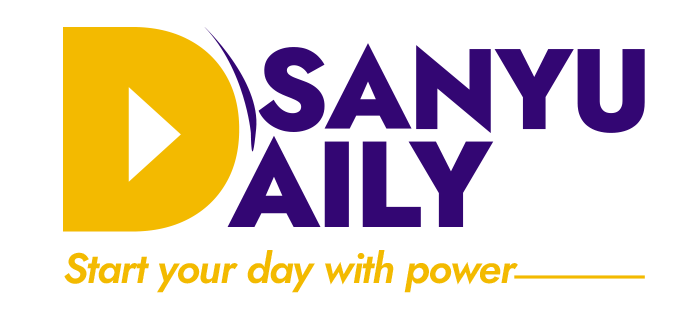Today on UGANDA'S SPECIAL PROJECTS (USP)

Have you heard?
The government is going to invest UGX 5 Trillion into the Uganda Development Bank (UDB). Now, that's not pocket change – that's some serious dime and it's aimed at turbocharging our nation's development.
Let's break down what this means; the good stuff we can expect, potential bumps in the road, and how to steer clear of them.
Imagine UDB as Uganda's economic growth engine. For it to really roar, it needs fuel, right? This UGX 5 Trillion is precisely that fuel or 'Mafuta' .
Capitalization, in simple terms, means giving the bank more money to lend out.
This isn't just about having a bigger piggy bank;
It's about strategically deploying this money to sectors that can create everyday jobs in things like crop farming, foods & beverages , metal & wood fabrication, in tourism and hospitality and so many other things.
It's about boosting local production of goods and services in our communities from Kisoro to Kabong and Busia to Moyo.
So, what can we expect from this significant capital injection?
Think of it as planting seeds that will eventually blossom into tangible benefits:
Number one: More access to affordable credit.
One of the biggest business hurdles is accessing affordable loans. To get Ush 50 million from a local bank , you need to show them a running business, give them a land title, that is in your names or for the business and is worth 100 million. And not to forget guarantors and the 10% to smoothen the process.
But with more money - the Government is hoping that UDB can lend money to a wider range of entrepreneurs and existing businesses at interest rates lower than the current 12%.
Imagine a partnership of two or three local turkey farmers finally getting a 5% concessional loan to upgrade their facilities and increase production and value to take up a deal of supplying turkey meat to a chain of luxury restaurants in Algeria. – that's the kind of impact we're talking about.
Number two: Boosting Key Sectors.
UDB has a mandate to focus on strategic sectors like agriculture, manufacturing, tourism, and infrastructure. This capital boost will allow Ugandan coffee farmers, milk producers, iron ore miners , hotel proprietors, artists and creatives and many others, to concentrate on adding value to our raw materials and works.
A 50kg bag of unprocessed Kiboko /Robusta coffee in Kikyusa -Luwero is now at Ushs 280,000/- while one cup of brewed coffee (...valued added) in Cafe Javas goes for UGX 11,000/- and a 50 gram Tin of coffee (...valued added) in a supermarket goes for UGX 10,000/-.
This means that If you add value to a 50kg bag of Kiboko --you could probably get upwards of Ushs 5 to 10 Million from it.....and that's the direction Gov't wants us to go.
Number three: Job Creation Galore.
When businesses get access to capital and key sectors grow, what naturally follows? More jobs!
For example, if Uganda Baati expands its operations, invests in new technologies, and sets up new ventures, they'll need more people to work for them. This is crucial for a Uganda with a young and growing population.
When young entrepreneurs team up to create start ups ; that collect and manage waste, that make furniture & fittings from our beautiful bamboo trees, that package our fish and 'nuuni' for export to china - it is only natural that jobs will be available...and thats what where we are headed.
Number four: Import Substitution and Export Promotion.
By supporting local manufacturing and production, UDB can help reduce Uganda's reliance on imported goods.
Native companies like ; Mukwano Group, Roofings Group, Kyagalanyi Coffee, Hima Cement, Mandela Group of companies and many others... have scaled up operations, increased thier export potential and are bringing in the foreign money.
They have showed us it's possible.
UDB is now being given the power to back your business with the capacity to expand and grow beyond our borders.
By strategically investing in key areas, the government is laying the foundation for sustained and inclusive economic growth. It's about building a more resilient and self-sufficient economy for the future.
What are the expected problems with this initiative?
Now, let's be real. Injecting a large sum of money doesn't automatically guarantee success. There are potential challenges we need to be aware of and how to handle them.
Number one: Inefficient Loan Disbursement.
If the process of vetting loan applications and disbursing funds is slow; bureaucratic, or riddled with red tape and confusion, then the intended impact might be delayed or diluted.
Our business people should not struggle navigating complex application processes and waiting months for funds they desperately need and in some cases not getting the funds at all
UDB will need effecient & transparent processes that use technology to speed up loan application and ease disbursement & communication. The unnecessary bureaucracy should be kept away please.
Number two: Risk of Mismanagement and Corruption.
With large sums of money involved, there's always a risk of mismanagement, corruption, connivance or the funds not reaching the intended beneficiaries.
But the beauty is that the monitoring agencies like; IGG, SHACU, & Auditor General are getting better at their game.
Number three : Poor Loan Recovery.
If UDB isn't effective in recovering the loans it issues, its capital base weakens over time, limiting its ability to continue supporting development. Borrowers defaulting on their loans leaves UDB with less money to lend to others who are ready for the cash.
Number four: Political Interference.
Undue political influence in lending decisions could lead to funds being allocated based on tribes and friendship rather than sound economic principles, this pushes back the achievement of our planned development goals.
Number five: Lack of Adequate Monitoring and Evaluation.
Without good systems to track , measure and analyse the data on fund usage and the impact of the loans, it will be difficult to determine the success of this capitalization and therefore make necessary adjustments.
So, What should we do?
Simple, UDB needs;
▶️ Robust governance structures, ▶️ Protection from Political Interference, ▶️ Thorough credit assessment for borrowers, ▶️ Strict internal controls and independent oversight, ▶️ And establishing clear performance indicators for UDB work and officers,
These will enhance accountability for the fund.
And whats the big picture?
This Ushs 5 Trillion capitalization is a bold and potentially transformative move by the government. If managed effectively, it has the potential to unlock significant economic growth, create much-needed jobs, and foster sustainable development across key sectors.
However, the success of this initiative hinges on addressing the potential challenges proactively through ; transparency, efficiency, and a steadfast commitment to sound financial management.
It's like planting a tree – the seed has been sown, now it needs careful nurturing to grow strong and bear fruit for all Ugandans.
This is an exciting time, and with the right approach, UDB can truly become the powerful engine of development Uganda needs.
That's it for today - - till next Tuesday.
For God and Our Country.
The Sanyu Daily Team.
